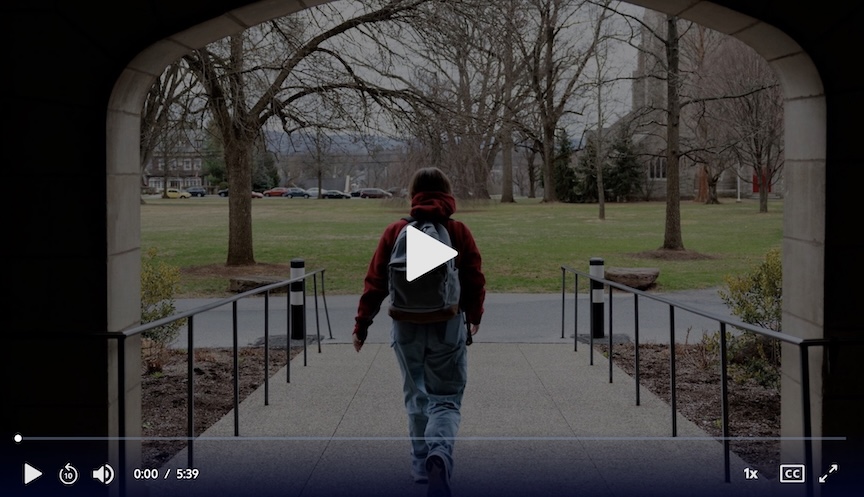High School Counselor Week
Weekly stories, facts, trends, and other information from around the country
September 25, 2025
Trump’s push for more admissions data collides with a hollowed-out Education Department
FedScoop – September 22, 2025
From early childhood to K-12 and higher education, schools across the country have relied for decades on the Education Department’s data collections to inform policy. President Donald Trump now wants to leverage it to investigate whether race-based preferences are used in college admissions. But with the agency’s research offices gutted, various data collection contracts in limbo and the National Center for Education Statistics — the agency’s statistical branch — left with just three employees, questions swirl over whether the task is feasible.
The K12-to-college pipeline is rockier for high-poverty students
K-12 Dive – September 17, 2025
Just a quarter of students who graduated from high-poverty high schools in 2017 and 2018 earned at least an associate’s degree within six years, the center found. Meanwhile, students who graduated from more affluent high schools in 2017 and 2018 more than doubled that six-year completion rate at 59%. They also had the lowest persistence rate (74%) for continuing college between the first and second year when compared across other characteristics such as their high school’s location and minority levels.
What ICE agents can and cannot legally do during arrests
NPR – September 5, 2025
Immigration agents are often given wide latitude in their work. That means a lot of what the public has been witnessing since President Trump took office — and may be shocked by — is likely legal. But what is allowable is becoming more unclear as these tactics test the limits of the law, according to immigration law experts. NPR asked immigration law experts to explain what we know is and isn’t legal when it comes to immigration enforcement.
 A Word About College Essay Styles
A Word About College Essay StylesPost – September 24, 2025
Counselors’ Corner with Patrick O’Connor, Ph.D.
 Getting Great Letters of Recommendation – Part 2
Getting Great Letters of Recommendation – Part 2Post – September 17, 2025
College Advice & Timely Tips with Lee Bierer
Lessons Learned from School-Based Threat Assessments
Counseling Today – September 23, 2025
Although threat assessments have been around for decades, there continue to be incidents of school-based mass violence. Research showed that school counseling supervisors identified an increased need for counselors to be knowledgeable of and competent in behavioral threat assessment. A threat assessment is an evaluation of a person’s concerning behavior to determine and decrease the potential risk they may pose to themselves and/or a community. A school-based team may comprise administrators, counseling professionals and law enforcement. Here are 10 lessons I’ve learned from years of working in communities and schools on collaborative threat assessment teams…
How to Write a Strong Counselor Recommendation Letter
Bucknell University Admissions Blog – September 12, 2025
Writing a counselor recommendation letter for a student applying to college is a meaningful responsibility. You’re not just offering support — you’re adding valuable context that college admissions officers rely on to see the full story behind the student’s application. But what exactly should you include? How do you structure it? And how can you ensure your letter makes an impact? Here’s a practical guide for school counselors looking to write powerful, authentic recommendation letters that stand out.
The Truth About College Rankings: What Families Need To Know
Forbes – September 23, 2025
Every fall, families navigating the college application process are met with a flood of fresh rankings. These lists, which range from LinkedIn’s “50 best colleges for long-term career success in the U.S.” to Forbes’ list of America’s Top Colleges and New Ivies, draw considerable public attention as they spark excitement, envy, and, yes, confusion. But here’s the truth: rankings are powerful cultural artifacts, not roadmaps. They reflect prestige, metrics, and marketing, but not necessarily what will make your child thrive.
Want to Raise a More Compassionate Teen? Their After-School Activities Might Be the Key
Parents – September 19, 2025
Volunteering and group activities in high school can help teens grow into kind, caring adults. Not every extracurricular builds empathy the same way—those with a service or teamwork focus make the biggest impact. Parents can model compassion early by showing kids how to help others in everyday life.
 A look at the future of DEI on college campuses as hundreds of programs disappear
A look at the future of DEI on college campuses as hundreds of programs disappear
PBS News – September 20, 2025
Change is in the air as college students return from summer break this year. At more than 400 campuses across the country, programs and centers that promote diversity, equity and inclusion have been eliminated or rebranded. Ali Rogin speaks with Paulette Granberry Russell, president of the National Association of Diversity Officers in Higher Education, for our Rethinking College series.
9 Ways to Glow Up Your High School Resume Even If You Think It’s “Not Impressive Enough” (with Examples)
The Teen Mag – September 23, 2025
Writing a resume in high school can feel awkward. You might be thinking: “I’ve never had a real job—what am I supposed to put on here?” But here’s the secret: nobody expects you to have a stacked resume at 16 or 17. What employers, colleges, and scholarship reviewers are looking for is potential. They want to see your willingness to learn, contribute, and take initiative. Here are 9 strategies to help you make your high school resume shine, even for opportunities that might feel competitive…
Is College Still the Best Path? Gen Z’s Changing Views
Investopedia – September 23, 2025
Rising college costs and student debt are pushing Gen Z to rethink traditional four-year degrees. Alternatives like apprenticeships, coding boot camps, and online certificates may offer faster, lower-cost paths to well-paying jobs. College can still pay off—but only if your major, debt, and graduation timeline align with solid career outcomes.
Q&A: U.S. Faith-Based Colleges and Universities Grow
U.S. News & World Report – September 23, 2025
While U.S. colleges and universities overall have entered a predicted and protracted period of enrollment decline, religious and faith-based schools generally continue decades of growth. More than 850 FBCUs are home to about 1.8 million students. In spite of the fact that younger generations are less religious than older generations, students are increasingly connecting higher ed to values formation and moral clarity. Research also reveals connections between religion, faith and flourishing, making FBCUs an attractive option for many students.
Trump isn’t cutting Pell Grants, after all − but other changes could complicate financial aid for some student
The Conversation – September 24, 2025
Guided by evidence that higher borrowing limits contribute to tuition increases, the tax breaks and spending cuts bill that President Trump signed into law in July brings changes to the federal financial aid system that prospective higher education students should understand. The Pell Grant – a need-based higher education grant that, unlike a loan, does not need to be repaid – lies at the heart of the federal financial aid system. But while the administration is slightly expanding people’s eligibility for Pell Grants, the new policies also aim to reduce the national student loan spiral by reducing limits on how much some students can borrow for their educations
See the Average College Tuition in 2025-2026
U.S. News & World Report – September 23, 2025
The average sticker price for in-state public schools is about one-quarter what’s charged by private colleges, U.S. News found. But sticker prices don’t tell the whole story. Private schools can often make up the price gap through tuition discounts and institutional aid.
How To Use AI For Finding College Scholarships
The College Investor – September 22, 2025
AI tools like ChatGPT and Perplexity can speed up scholarship searches. But do NOT treat AI as a final authority. AI systems can “hallucinate” – inventing scholarship names, deadlines, or amounts that don’t exist. That risk makes verification essential. Students should always cross-check opportunities against reliable scholarship search tools, such as the College Board’s Scholarship Search, Fastweb, Scholarships360, or state higher education portals.
New Report Reveals the Struggle Worldwide to Prepare Young People for Work
The 74 – September 23, 2025
Too many countries send young people into adulthood without the skills or support they need to thrive at work. That is the central warning of Education at a Glance 2025, the latest in the Organisation for Economic Co-operation and Development’s annual series of global education reviews. This year’s edition devotes particular attention to career education, workforce readiness and the critical transition from grades 10-12 into employment or further study. The findings are stark: While some countries provide clear pathways from classroom to career, many — including the United States — leave too many teenagers unready for the next stage of life.
4 in 5 hiring managers say high schoolers not prepared for workforce
K-12 Dive – September 22, 2025
The 500 hiring managers surveyed across a range of small, mid-sized and large companies say they value soft skills such as critical thinking and communication in entry-level hires. Nearly 90% say real-world experience gained through internships, career and technical education, or jobs is “most valuable” — even more so than a formal education. And the overwhelming majority say there should be more business courses in high school.
Credential Chaos: Career Certificates Boom in High School, But Not All Have Value
The 74 – September 18, 2025
The number of students earning career credentials has exploded nationally as states and schools increasingly encourage students to pursue them — tripling in some states over the last few years. But experts warn that not all credentials are created equal. Researchers are finding massive mismatches between the credentials students are earning and what employers seek. Students are often earning credentials that employers aren’t seeking (such as national basic construction skills and OSHA safety certificates). Meanwhile, ther is an undersupply of students earning credentials employers want, such as Microsoft Office Specialist certifications, or nursing, electrical and commercial drivers’ licenses. There are only a few resources available on hiring and wages that can help students and schools assess whether a credential has real value.
Subscribe to our Weekly Emails
FAFSA Tips for Parents
sponsored by Fastweb
Step-by-step guide for completing the FAFSA.
How AI is Changing the College Search (And How to Use It Effectively)
St. John’s University Admission Blog – September 23, 2025
AI can be surprisingly helpful, but only if you know how to use it well. Think of it like asking a friend for advice: the more details you give, the better their answer will be. If you just ask, “Where should I go to college?” you’ll probably get a vague or generic response. But if you include specifics about your grade point average (GPA), location preferences, financial needs, or academic interests, you’ll start to see answers that feel tailored to your life. That’s where AI really shines; it can act like a research partner, helping you cut through the noise and focus on the schools that actually align with what you want. Here are a few examples of how you could use AI to guide your search:
New York state high schools train teens in mental health first aid
Chalkbeat – September 22, 2025
High schools across New York state are training students on how to support their peers in crisis, as rates of teen anxiety, depression, and suicide continue to climb across the country. Teen Mental Health First Aid was started by the National Council for Mental Wellbeing, a nationwide non-profit. This training program helps students learn how to spot common warning signs, understand the effects of bullying and school violence on mental well-being, engage in meaningful conversations with classmates about mental health, and know when to involve a trusted adult.
What I Learned After Building a Tech Tool to Support Student Well-Being
EdSurge – September 17, 2025
What we have built is more than a digital toolkit. It is a consistent and school-wide structure for emotional care. Students feel safe naming their emotions. Families know that support is active and ongoing. Teachers have the appropriate systems in place to respond without becoming overwhelmed. These results are possible because technology creates the structure that holds everything together. Technology does not replace human connection. If anything, it strengthened our school community and allowed us to center the people who matter most.
Military academies eye Classic Learning Test for admissions as skeptics voice concerns
The Hill – September 23, 2025
The U.S. military academies are reportedly looking at accepting scores from the Classic Learning Test (CLT), an alternative to the SAT and ACT that has been propped up in conservative circles, starting with the 2027 admissions cycle. The CLT is only currently accepted by 300 colleges — mainly small, private, religious institutions. Conservatives have argued the test, developed in 2015, is needed to break the duopoly the SAT and ACT have on the market, while opponents worry about the rigor of the exam and the lack of historical data to support its ability to test college readiness.
What Is the Classic Learning Test, and Why Is It Popular With Conservatives?
Education Week – September 22, 2025
The Classic Learning Test, first unveiled a decade ago by the for-profit company Classic Learning Initiatives, assesses high schoolers’ verbal reasoning, grammar and writing, and math skills, just like its competitors do. But unlike the other tests, the CLT draws its reading-comprehension passages exclusively from “classic” works—a difference it claims provides “an invaluable opportunity to engage students with the texts and authors that have shaped history and culture.” Originally accepted primarily by small and religious colleges, its reach hasn’t been broad. But what’s actually on the test, and how different is it from other entrance exams? This explainer will explore how the exam defines “classic” works, why it’s become associated with a conservative political movement, and questions about how comparable it is to other tests of students’ college readiness.


